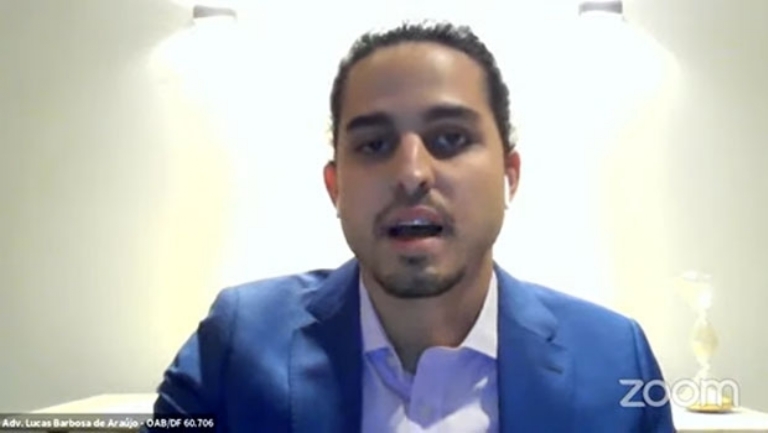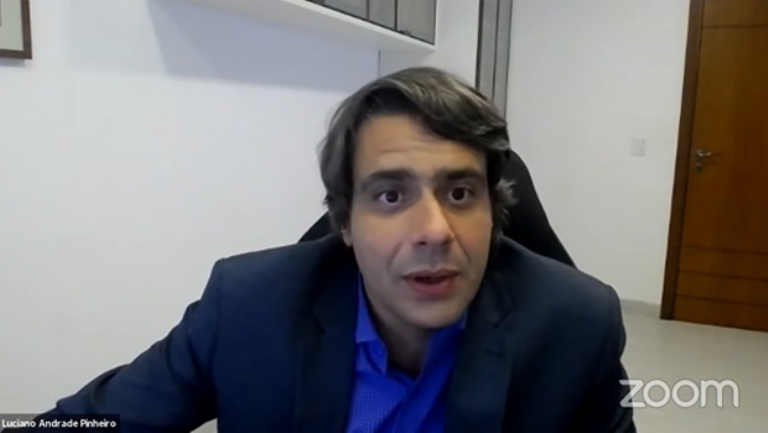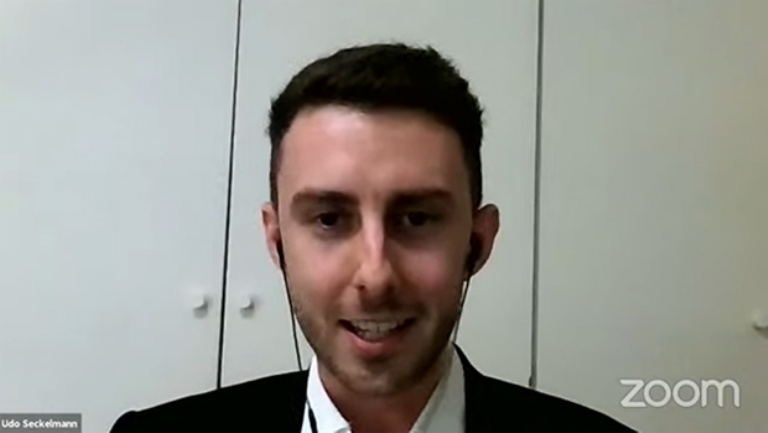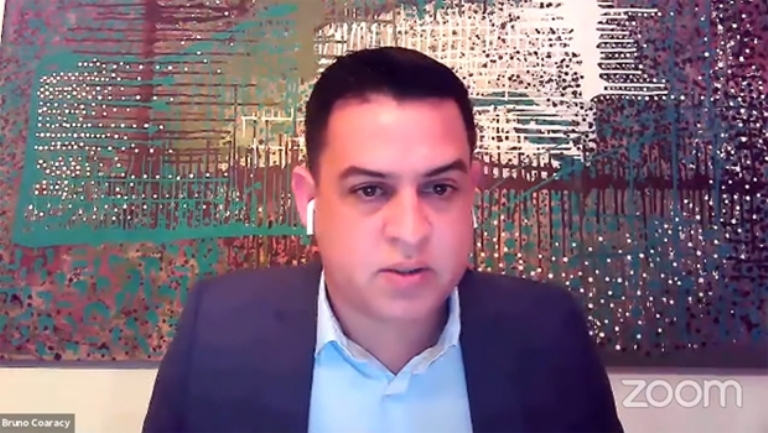

When welcoming the attendees, Lucas de Araújo highlighted the importance of the topic, especially with the approval in the National Congress of the incidence of taxes on the GGR and how this tax aspect has been highlighted as the main concern of the market. Another issue was the wait for regulation, which had already been promised by the government for the middle of this year and yet countless bookmakers have stamped their brands on football clubs’ jerseys in the main championships in Brazil.

According to him, Brazil is potentially the third largest market in the world, and it is important that all issues related to sports betting are discussed a lot. "There were always conversations about tax aspects when discussing the activity, but now, with the approval of the GGR, it is necessary to discuss the other issues related to regulation."
When talking about the GGR, Luciano Andrade Pinheiro stated that understanding the sports betting mechanism makes it clear how much the GGR is a fairer taxation model for the activity. “A bookmaker's revenue is the mediation of bets and cannot be taxed on the turnover. The taxable income is the mediation, and it is on this value that the taxes must be levied,” he explained.

According to him, all the countries that adopted the taxation on betting turnover did not have a good result in terms of activity growth, while those that adopted the GGR, sports betting companies are investing much more as they perceive the profitability of the business. “The GGR is much better for the development of the activity,” he highlighted.
Udo Seckelmann highlighted that the existence of a large market in Brazil cannot be denied, even if it is not regulated. “The business is in operation, but the government does not collect from the activity due to the lack of regulation. And the taxation must be bearable by the operator for it to establish itself in Brazil.”

He cited examples of taxation, such as the United Kingdom, where sports betting is taxed at 15% on the GGR; Denmark, which charges 20%; Italy, also 20%; and Spain, 25%. In these countries, the activity is extremely attractive, and business is doing very well. In Portugal and France, sports betting has a low channeling rate due to the high tax charged on betting turnover.
“This was the model that was being designed for Brazil, given the fact that the law was made in a hurry. We have to salute the market players and the National Congress for the change to the tax collection format on the GGR, in the range of 20%, which shows that Brazil is following one of the best examples in the world, the United Kingdom,” Seckelmann stated.

Bruno Coaracy Duarte, as a tax lawyer, highlighted that the change in the taxation model was important, because knowing how to dose the tax is to encourage the market to grow in a healthy way. “In any regulation, the issue of taxation must be considered in order to make the system fair and egalitarian. In the case of sports betting, we are debating regulation and the adequacy of taxation was very well resolved in the National Congress. When dealing with the matter, the Parliament is helping in the process of defining the regulation as a whole, since the movement to define the taxation is encouraging the resumption of discussions on the regulation.”
Still regarding the taxation of sports betting companies, Coaracy was asked about a possible tax war between states wanting to attract companies to their jurisdictions from a lower percentage of taxation, which, in his assessment, could happen if there is no equalization of the tax to be applied to the provision of services on bookmakers. "Via a complementary law, the format of the issue of levying this tax on the activity could be dealt with, which would give a balance to the business itself."
The simplification of taxation on sports betting, according to Udo Seckelmann, could keep companies currently operating in the country and attract them to settle in Brazil. “There are still points to be adjusted, but the GGR was already a first and important step to attract these companies to settle in the country. Now, the taxation for bettors remains to be defined, as they are important for the business. You cannot tax the player in the same way as you do in lottery games. Sports betting cannot be made impossible if the bettor is heavily taxed.”
On the regulation itself and voting on other issues related to gaming activity in general, Luciano commented that proper control and supervision of betting and gaming will ensure that the activities will not merge with illegal activities or actions. “What you see in Brazil is associating gambling and betting with illegal activities. With regulation and inspection, even the jogo do bicho game can be transformed into a lawful activity that generates employment, tax and income.”
For Udo, gambling is still considered a taboo, seen as a misdemeanor. “Sports betting operators have other verticals like casinos and other games. How to define what he can and cannot offer his customers is the big question that has to be put on the table. It is important for Brazil to define what is a game of chance and what may or may not be offered, including changing the definition of what is a game of chance. Operator, bettor and government need to have the same weight of importance in the issue of regulation of sports betting in Brazil.”
Source: GMB